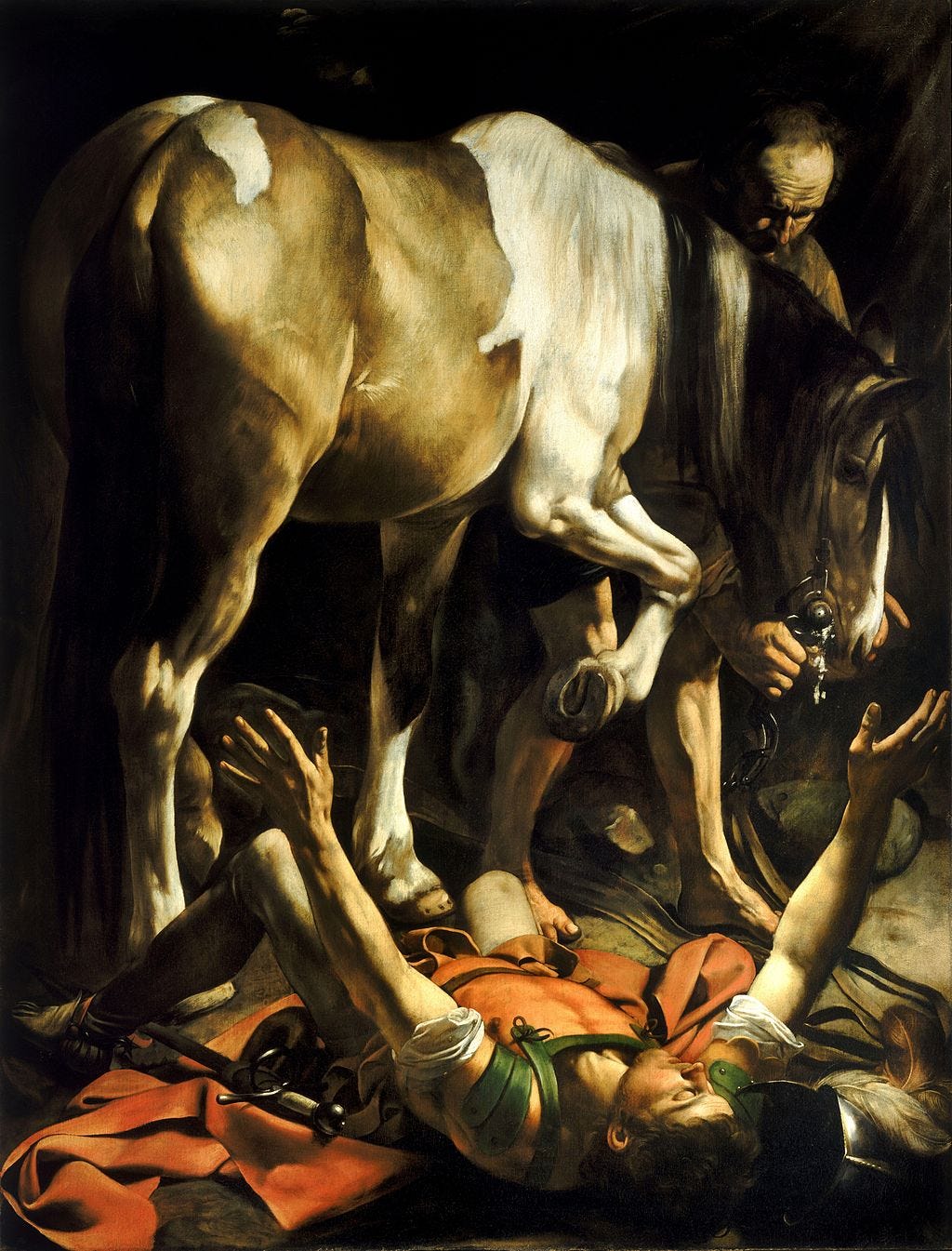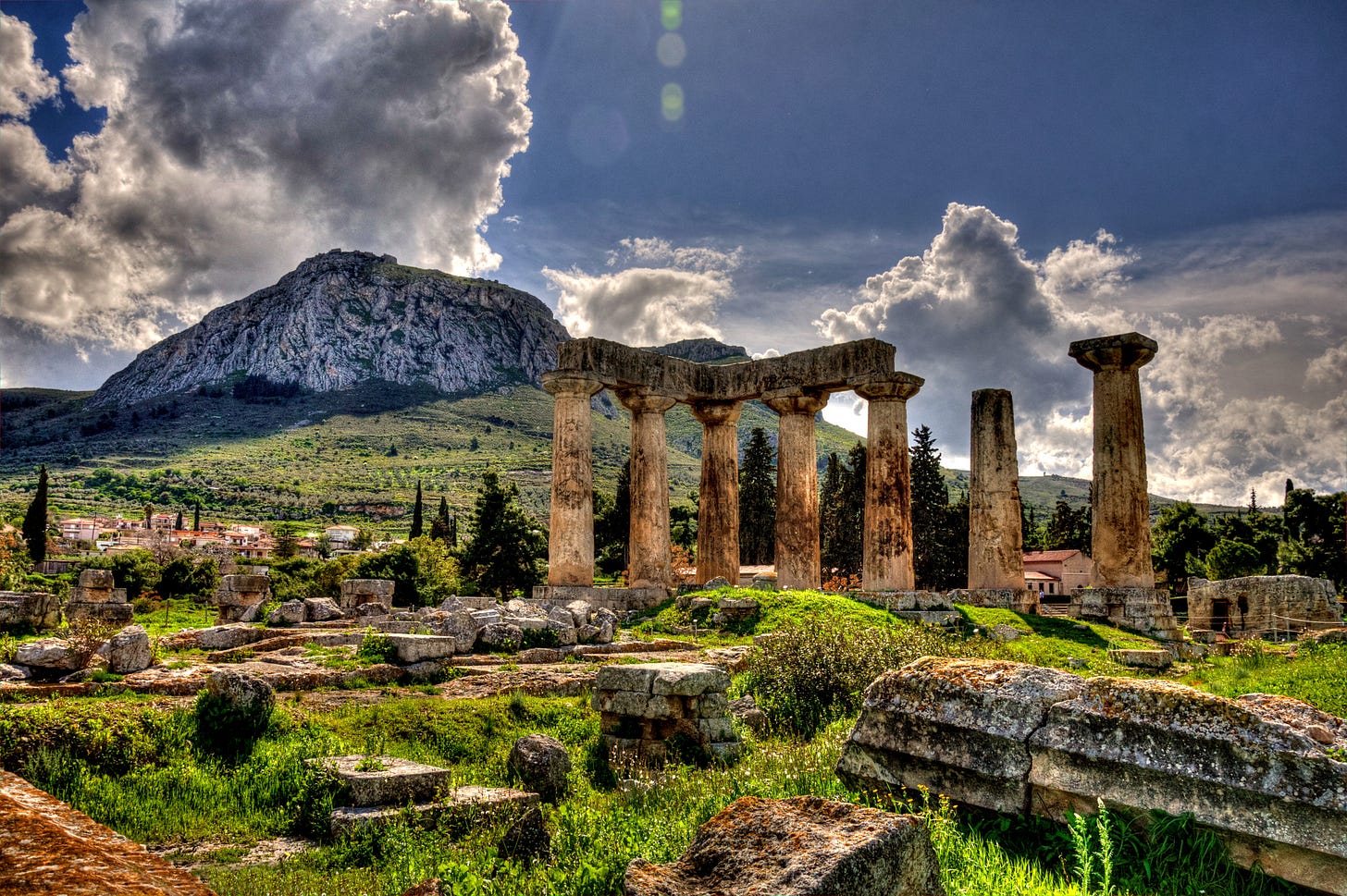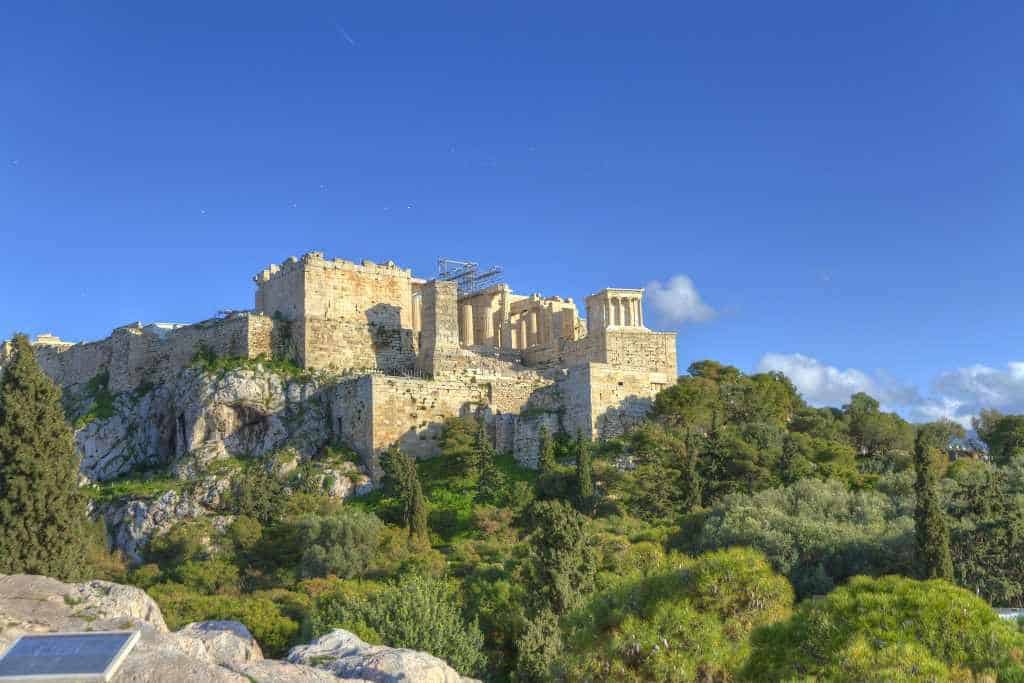…the peace of God, which transcends all understanding, will guard your hearts and your minds in Christ Jesus.
Advent Day 18: Paul the Apostle (circa 5-65)
No figure besides Jesus has had a more profound effect on Christianity than the apostle Paul of Tarsus. As the first evangelist, he traveled the eastern Mediterranean spreading word about Jesus far beyond the borders of Israel. As the prolific writer of letters that circulated the ancient world, he proclaimed his understanding of who Jesus was—a mystical theology that came to form the core of a new religion. Without Paul, Christianity may well have remained a small Palestinian sect. With him, it has swept the globe.
But before Paul was the apostle par excellence, he was a middle manager in service to Jerusalem’s religious authorities for whom he ferreted out, captured and killed followers of The Way, as the Jesus movement was known in its early days. By all accounts, Paul was good at crushing this new sect. He even got braggy about it in one of his letters (Galatians 1:13-14), saying, “I tried to destroy it. And I advanced beyond my contemporaries in my own nation.” But then, about five years after Jesus was crucified, while en route to Damascus to arrest some followers of The Way, he experienced a vision that would change the world:
As I drew near Damascus, about noon a great light from the sky suddenly shone around me. I fell to the ground and heard a voice saying to me, “Saul, Saul (Paul adopted the Roman pronunciation of his name later), why are you persecuting me?” I replied, “Who are you, sir?” And he said to me, “I am Jesus the Nazorean whom you are persecuting.”
After the vision passed, Paul was led by his traveling companions into Damascus. There he lay blind for three days until Ananias, a follower of The Way, arrived and, in an act of forgiving grace, healed him. Not only was his sight restored, but the eyes of his heart were opened. The mind-blowing fact that he, an enemy of Jesus followers, was not only not being punished for his former ways but was, in fact, beloved, cared for and called out for a higher purpose utterly humbled and transformed Paul. He bolted from his bed, went out to be baptized and was soon in a nearby synagogue preaching about Jesus.
Paul’s view of Jesus underwent an immediate and dramatic shift. Previously he saw Jesus as a rabble-rousing itinerant revolutionist rabbi. Now, mystically converted, he concluded that Jesus was, yes, Jesus the rabbi, but also something much more, much bigger—the revelation of the love of God, the cosmic Christ who is before all things and in all things, and in whom we live, move and have our being (Acts 17:28).
For Paul, the Divine was no longer up or out there, but inside, outside and all around.
Paul spent the rest of his life traveling the Mediterranean, trying to awaken people to this mystical truth. This was dangerous work. Crowds were hostile. Travel was brutal. At various points Paul was arrested, shipwrecked, and stoned. Nevertheless, he persisted.
In his letters which eventually came to form half the New Testament, Paul uses the phrase in Christ to describe his radical vision of loving oneness with God. For Paul, to be in Christ is to be awakened to God’s Spirit, not only in us but in all of creation—to center our lives in love, justice and mercy as we resist the domination, violence and injustice found both in the world and in our own hearts.
To illustrate his immersive, unitive experience in Christ, Paul used images of the body.
…in Christ we, though many, form one body, and each member belongs to all the others. (Romans 12:5)
For just as the body is one and has many members, and all the members of the body, though many, are one body, so it is with Christ. For in one Spirit we were all baptized into one body—Jews or Greeks, slaves or free—and all were made to drink of one Spirit. (Corinthians 12:12-13)
Debating the Epicurean philosophers in Athens, Paul drove home the point that God cannot be found in gold, silver and stone idols, or through rote religious practice. Rather, in Christ, we feel our way toward God in the dark. (Acts 17:24-29). Only through inner awakening—and certainly not through money, power or possessions—can we experience true freedom and life. In finding God, we possess nothing, but we possess everything. Or, as Meister Eckhart put it centuries later,
To be full of things is to be empty of God. To be empty of things is to be full of God.
Paul’s life was dramatically transformed when Love blinded him on the road to Damascus. Only such an immersive Love could lead to a conversion like his. Only a Love that never fails could have sustained him through his endless trials and tribulations. For Paul, to be in Christ was to be present to the deathless nature of this Love. His assurance in this good and beautiful truth led him, and other followers of Jesus, then and now, to a hope beyond hope (Romans 4:18), joy unspeakable (1 Peter 1:8), and a peace that surpasses all understanding (Philippians 4:7).
Advent Practice
Due to its frequent use at weddings, most of us could probably recite from memory parts of Paul’s first letter to the Corinthians. For many of us, the heavy use of this passage has diminished its punch, especially as it is usually lifted out of context.
For today’s practice, read chapter 13 of this letter while trying to maintain a beginner’s mind. See if you can come at it fresh, absorbing the words in their original context. This is not about romantic love. Far from it. It is about agape love—loving all of creation for Love’s sake. Consider copying this passage down and carrying it around with you for a week, taking it out several times a day to read it and ponder how it guides you and how you might further live into it.
If I speak in the tongues of men or of angels, but do not have love, I am only a resounding gong or a clanging cymbal. If I have the gift of prophecy and can fathom all mysteries and all knowledge, and if I have a faith that can move mountains, but do not have love, I am nothing. If I give all I possess to the poor and give over my body to hardship that I may boast, but do not have love, I gain nothing. Love is patient, love is kind. It does not envy, it does not boast, it is not proud. It does not dishonor others, it is not self-seeking, it is not easily angered, it keeps no record of wrongs. Love does not delight in evil but rejoices with the truth. It always protects, always trusts, always hopes, always perseveres. Love never fails. But where there are prophecies, they will cease; where there are tongues, they will be stilled; where there is knowledge, it will pass away. For we know in part and we prophesy in part, but when completeness comes, what is in part disappears. When I was a child, I talked like a child, I thought like a child, I reasoned like a child. When I became a man, I put the ways of childhood behind me. For now we see only a reflection as in a mirror; then we shall see face to face. Now I know in part; then I shall know fully, even as I am fully known. And now these three remain: faith, hope and love. But the greatest of these is love.
Holiday Happenings at Life In The City
Dec 21, 7 pm: Blue Christmas, a contemplative service for the darkest night of the year.
Dec 23, 6 pm: Christmas Eve-Eve candlelight service, an annual LITC tradition.
Dec 24, 11:15 am: LITC’s regular Sunday service.
Dec 31, 11:15 am: A fun, casual service with cookies and coffee to welcome 2024.
Ready For More?
Read the Introduction to the 2023 edition of The Heart Moves Toward Light: Advent With The Mystics, Saints and Prophets.
Find more mystics, saints and prophets in our Archive.
Feedback
Did you catch a typo? Do you have suggestions for mystics, saints and prophets we might cover in the future? Leave feedback in comments section below or email Greg Durham at greg@lifeinthecityaustin.org.






